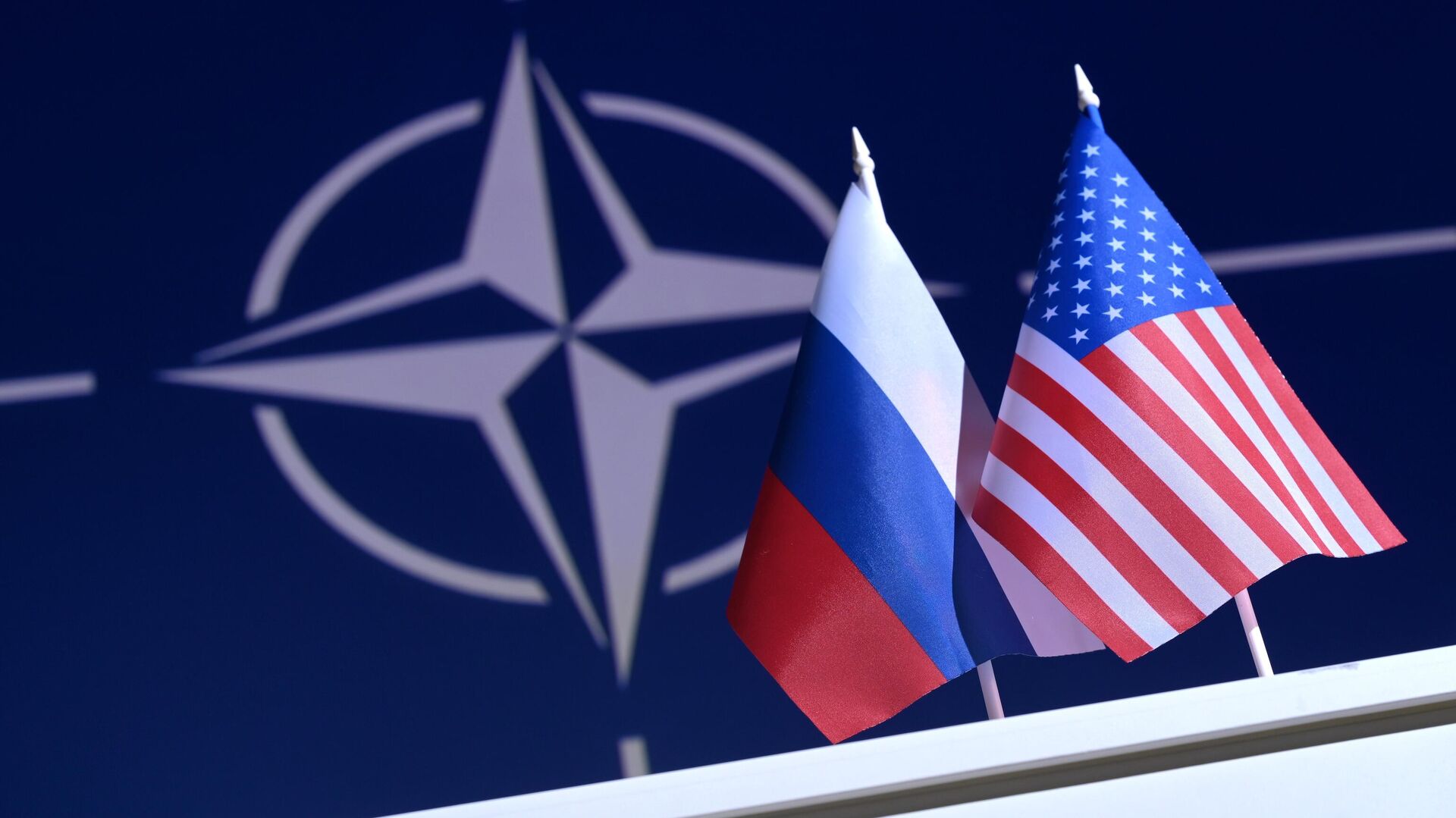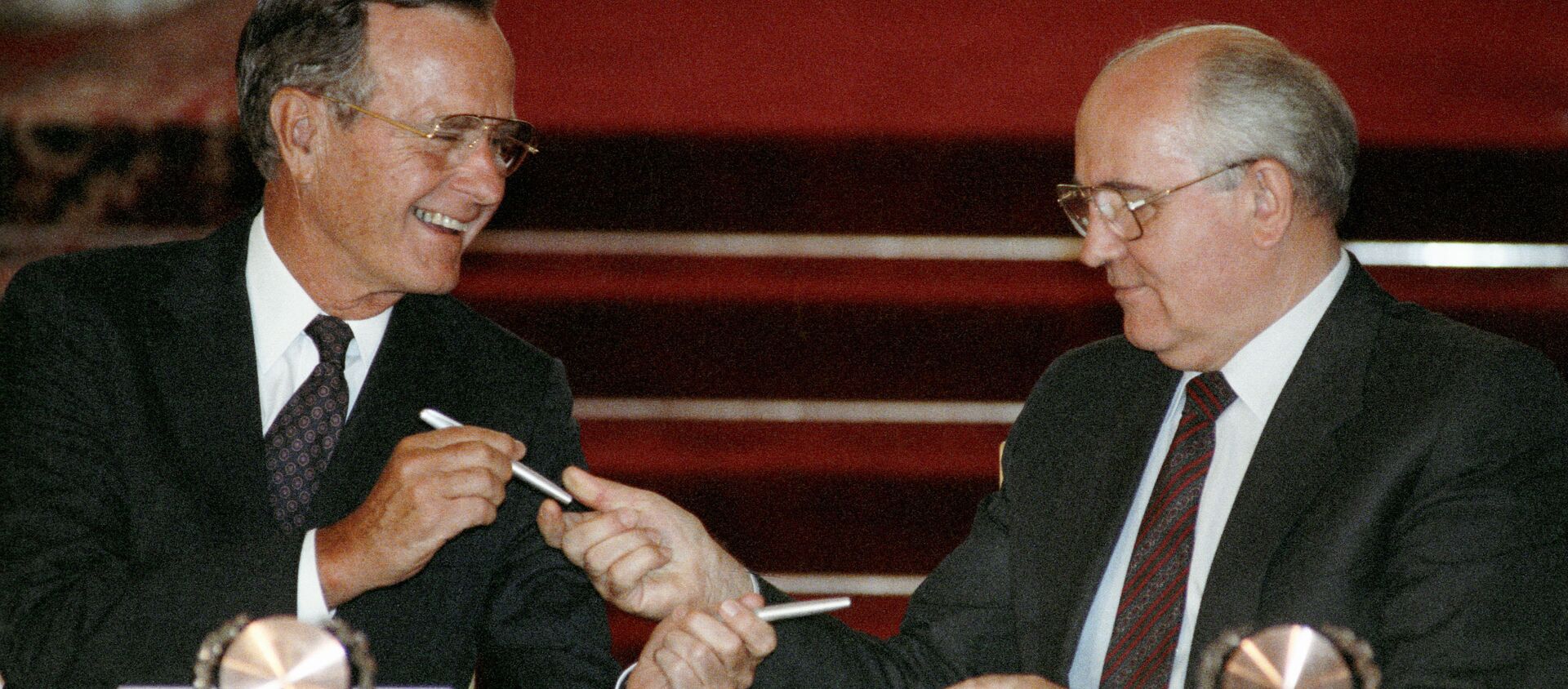https://sputnikglobe.com/20220109/russia-has-not-been-thrown-off-balance-by-us-tough-position-on-security-guarantees-moscow-says-1092135168.html
Moscow Won't Stoop to Discussing NATO Demands on 'De-escalation Measures' on Russia's Own Territory
Moscow Won't Stoop to Discussing NATO Demands on 'De-escalation Measures' on Russia's Own Territory
Sputnik International
The Russian Foreign Ministry laid down publicly a pair of security proposals to the US and NATO which Moscow believes could ease tensions considerably and end... 09.01.2022, Sputnik International
2022-01-09T14:42+0000
2022-01-09T14:42+0000
2022-01-09T15:51+0000
security
https://cdn1.img.sputnikglobe.com/img/07e5/0c/11/1091602305_0:297:3078:2028_1920x0_80_0_0_10a39823a9327797eef07a612412f7e4.jpg
Russia is not prepared to discuss with the US and NATO any demands for 'deescalation measures' on its own territory in the course of the upcoming security talks, Deputy Foreign Minister Sergei Ryabkov has said.Russia has not been thrown off balance by the "tough" position set by the US and its NATO allies ahead of this week's security talks, Ryabkov added."The US position is quite tough; by all indications it has interlocked completely with the position which our neighbours in the West, and the one our direct neighbours from the so-called Bucharest Nine group of countries have been working out over the past weeks," Ryabkov said, referring to the group of nine Eastern European and Baltic country members of NATO ringing Russia's western frontiers."And of course, the NATO Secretariat is adding fire -sometimes burning with fire on this subject. But we have seen worse and this does not throw us off balance. We will explain persistently our logic and present arguments in support of our position," the diplomat added.The senior diplomat, who arrived in Geneva Sunday for the upcoming Russia-US, Russia-NATO and Organization for Security and Cooperation in Europe talks this week, also emphasized that any agreements reached between the two sides must be legally binding, and stressed that there would be no problems on the ratification of any treaties from the Russian side.Although many of the proposed security treaties' articles would be mutually observable, it would be up to the West to unilaterally reject further eastward expansion of NATO, and eliminate the existing military infrastructure it has established in the post-Soviet space, Ryabkov said."Even a layman understands that demanding concessions from Russia in a situation where NATO has been striving throughout the past decades to 'drive back' our country and turn it - if not into a subordinate, then at least to a secondary role in European and international politics - and to do so with direct damage to our security, will no longer work. This is all in the past," he said. "NATO needs to collect up its belongings and go back to the borders of 1997," Ryabkov added, referring to the alliance's frontiers as they stood before the bloc began to incorporate countries in Eastern Europe.The diplomat stressed that the Russian side is not "naive" enough to believe that a clarification of the position of the two sides will lead to immediate progress on the security proposals. Instead, he said, he would like "to get a clearer idea of what kind of leeway in positions our colleagues in Washington have. That's why we have come to Geneva. Leeway on the issues of interest to us, in the first place," he said."For us, a positive result would be a non-rejection of the set of priorities which we have formulated - and readiness to continue working on them," Ryabkov explained.Twin TreatiesThe Russian Foreign Ministry published two draft proposals on security guarantees between Russia, the US and NATO in mid-December. The proposed agreement between Russia and the US calls on both countries not to deploy forces and missiles in areas where they might be perceived as a threat to one another's national security, limits on the deployment of intermediate and shorter-range missiles, and a halt to NATO's eastward expansion.The second treaty, between Russia and NATO, similarly proposes a halt in the Western bloc's expansion, including the explicit request that Ukraine not be allowed to join the alliance. It also sets limits on the deployment of weapons and troops by NATO members to the alliance's eastern frontiers, except in exceptional circumstances and with Russia's agreement. The agreement calls for an explicit affirmation by both sides that they do not consider one another as adversaries.Russian officials have stressed that the agreements should be "evaluated in their totality" and not seen as a "menu, where it is possible to pick and choose" individual components one side happens to like.No Breakthroughs ExpectedSpeaking to US media on the Sunday morning news circuit, Secretary of State Antony Blinken told CNN and ABC News that he does not expect "any breakthroughs" at the upcoming talks, with the negotiations instead providing an opportunity to discuss Russia's apprehensions about NATO, "as well as address many concerns about Russia's conduct in Europe."Blinken suggested that the scale of NATO drills could be up for discussion, but that troop numbers are not. He also suggested that "there may be grounds for renewing" the Intermediate-Range Nuclear Forces Treaty, which Washington unilaterally scrapped in 2019 under Donald Trump.
https://sputnikglobe.com/20220109/us-penning-punishing-sanctions-against-russia-in-case-of-invasion-of-ukraine---report-1092122855.html
https://sputnikglobe.com/20190402/gorbachev-nato-expansion-reasons-1073764558.html
https://sputnikglobe.com/20220107/reports-that-us-ready-to-discuss-pulling-back-troops-from-eastern-europe-not-accurate---state-dept-1092102629.html
https://sputnikglobe.com/20220107/stoltenberg-nato-wont-compromise-on-principle-of-accepting-any-country-into-bloc--1092097941.html
Sputnik International
feedback@sputniknews.com
+74956456601
MIA „Rossiya Segodnya“
2022
News
en_EN
Sputnik International
feedback@sputniknews.com
+74956456601
MIA „Rossiya Segodnya“
Sputnik International
feedback@sputniknews.com
+74956456601
MIA „Rossiya Segodnya“
security
Moscow Won't Stoop to Discussing NATO Demands on 'De-escalation Measures' on Russia's Own Territory
14:42 GMT 09.01.2022 (Updated: 15:51 GMT 09.01.2022) The Russian Foreign Ministry laid down publicly a pair of security proposals to the US and NATO which Moscow believes could ease tensions considerably and end the East-West standoff over Ukraine. Russian and US officials are set to hold talks on strategic stability on Monday, followed by a meeting of the NATO-Russia Council on Wednesday.
Russia is not prepared to discuss with the US and NATO any demands for 'deescalation measures' on its own territory in the course of the upcoming security talks, Deputy Foreign Minister Sergei Ryabkov has said.
"I can say that that...the demands of the United States and other NATO countries that we carry out some 'de-escalation measures' on our territory are out of the question. This is a non-starter in the literal sense of the word. If the Americans want to talk about changing our approach, for example, to the Minsk Package of Measures [on peace in Ukraine] or even stutter about something like Crimea, this also has no chance for discussions," Ryabkov said in an interview with Russian media on Sunday.
Russia has not been thrown off balance by the "tough" position set by the US and its NATO allies ahead of this week's security talks, Ryabkov added.
"The US position is quite tough; by all indications it has interlocked completely with the position which our neighbours in the West, and the one our direct neighbours from the so-called Bucharest Nine group of countries have been working out over the past weeks," Ryabkov said, referring to the group of nine Eastern European and Baltic country members of NATO ringing Russia's western frontiers.
"And of course, the NATO Secretariat is adding fire -sometimes burning with fire on this subject. But we have seen worse and this does not throw us off balance. We will explain persistently our logic and present arguments in support of our position," the diplomat added.
Ryabkov noted that Russia is prepared to conduct an article-by-article discussion on the two security treaty proposals published by the Foreign Ministry in December. "Whether or not our American colleagues will be inclined for such a conversation, I have my doubts, based on the signals which we have heard over the past few days," he said.
The senior diplomat, who arrived in Geneva Sunday for the upcoming Russia-US, Russia-NATO and Organization for Security and Cooperation in Europe talks this week, also emphasized that any agreements reached between the two sides must be legally binding, and stressed that there would be no problems on the ratification of any treaties from the Russian side.
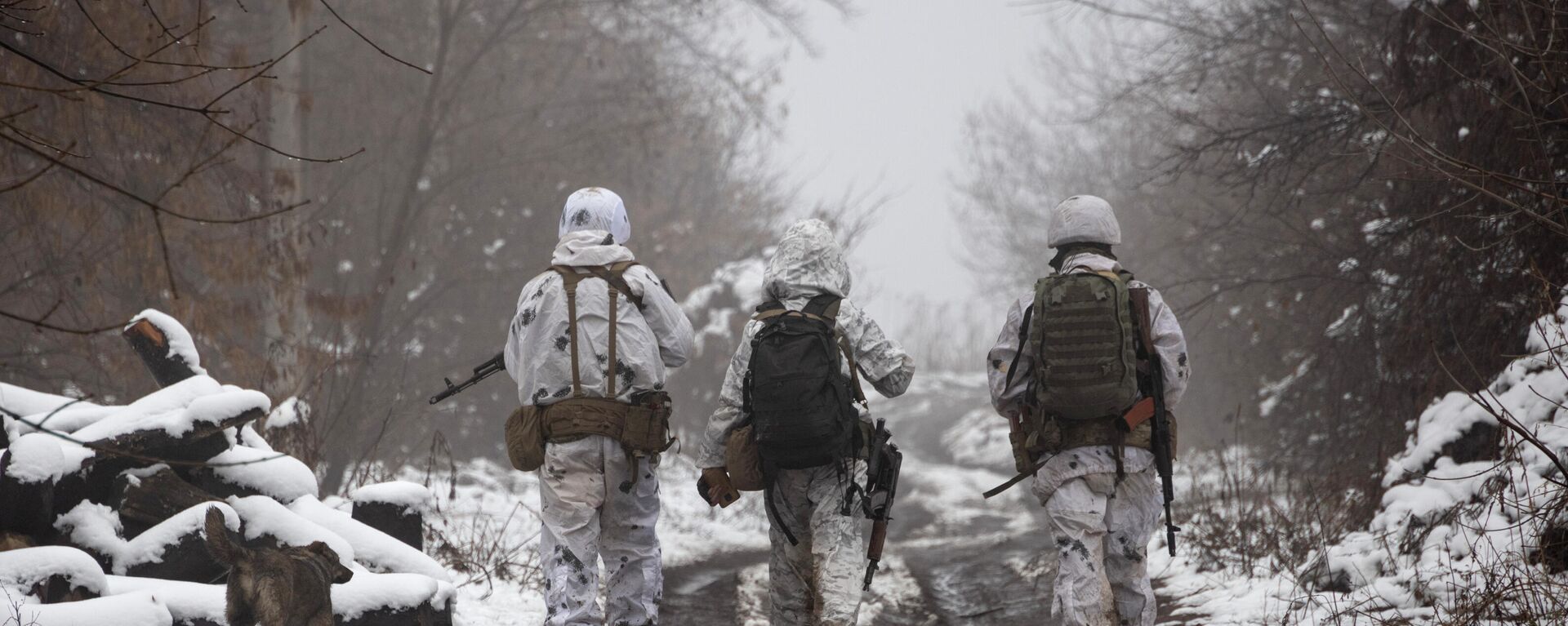
9 January 2022, 03:13 GMT
Although many of the proposed security treaties' articles would be mutually observable, it would be up to the West to unilaterally reject further eastward expansion of NATO, and eliminate the existing military infrastructure it has established in the post-Soviet space, Ryabkov said.
"Even a layman understands that demanding concessions from Russia in a situation where NATO has been striving throughout the past decades to 'drive back' our country and turn it - if not into a subordinate, then at least to a secondary role in European and international politics - and to do so with direct damage to our security, will no longer work. This is all in the past," he said.
"NATO needs to collect up its belongings and go back to the borders of 1997," Ryabkov added, referring to the alliance's frontiers as they stood before the bloc began to incorporate countries in Eastern Europe.
The diplomat stressed that the Russian side is not "naive" enough to believe that a clarification of the position of the two sides will lead to immediate progress on the security proposals. Instead, he said, he would like "to get a clearer idea of what kind of leeway in positions our colleagues in Washington have. That's why we have come to Geneva. Leeway on the issues of interest to us, in the first place," he said.
"For us, a positive result would be a non-rejection of the set of priorities which we have formulated - and readiness to continue working on them," Ryabkov explained.
The Russian Foreign Ministry
published two draft proposals on security guarantees between Russia, the US and NATO in mid-December. The proposed agreement between Russia and the US calls on both countries not to deploy forces and missiles in areas where they might be perceived as a threat to one another's national security, limits on the deployment of intermediate and shorter-range missiles, and a halt to NATO's eastward expansion.
The second treaty, between Russia and NATO, similarly proposes a halt in the Western bloc's expansion, including the explicit request that Ukraine not be allowed to join the alliance. It also sets limits on the deployment of weapons and troops by NATO members to the alliance's eastern frontiers, except in exceptional circumstances and with Russia's agreement. The agreement calls for an explicit affirmation by both sides that they do not consider one another as adversaries.
Russian officials have stressed that the agreements should be "evaluated in their totality" and not seen as a "menu, where it is possible to pick and choose" individual components one side happens to like.
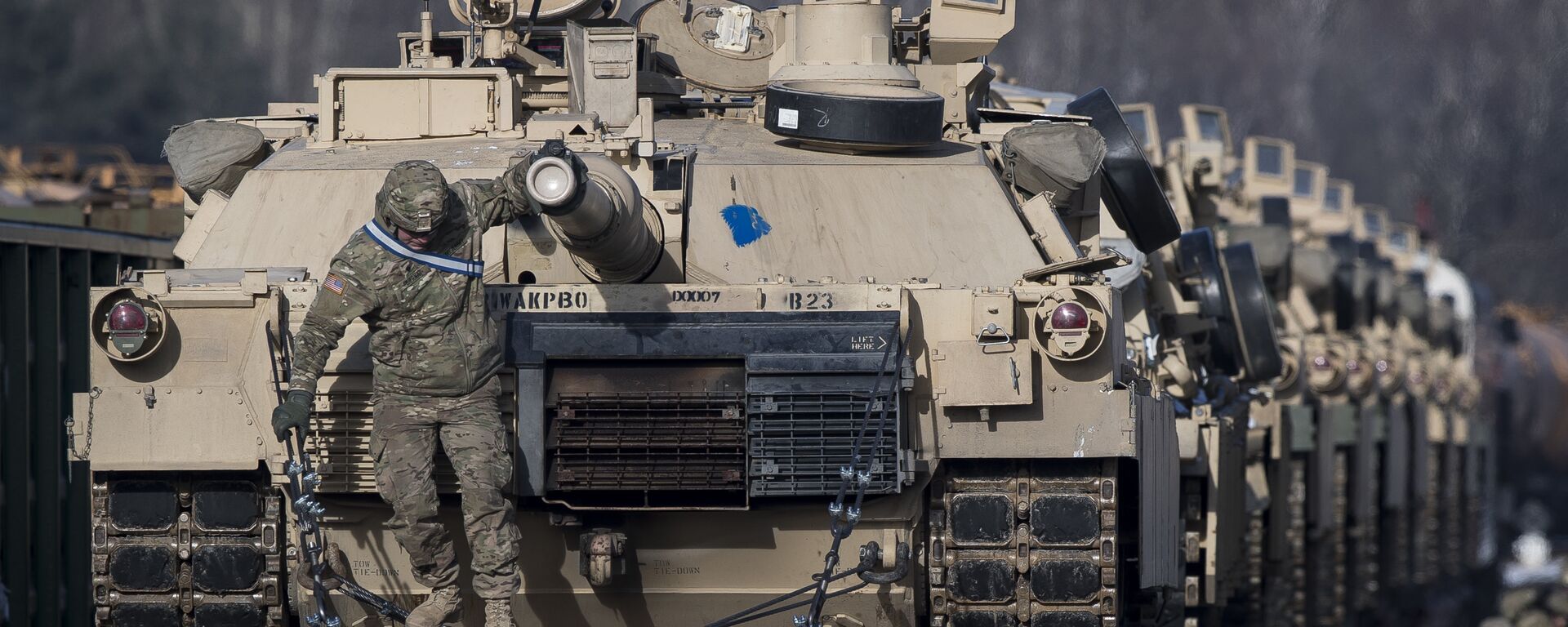
7 January 2022, 21:44 GMT
No Breakthroughs Expected
Speaking to US media on the Sunday morning news circuit, Secretary of State Antony Blinken told CNN and ABC News that he does not expect "any breakthroughs" at the upcoming talks, with the negotiations instead providing an opportunity to discuss Russia's apprehensions about NATO, "as well as address many concerns about Russia's conduct in Europe."
Blinken suggested that the scale of NATO drills could be up for discussion, but that troop numbers are not. He also suggested that "there may be grounds for renewing" the Intermediate-Range Nuclear Forces Treaty, which Washington unilaterally scrapped in 2019 under Donald Trump.
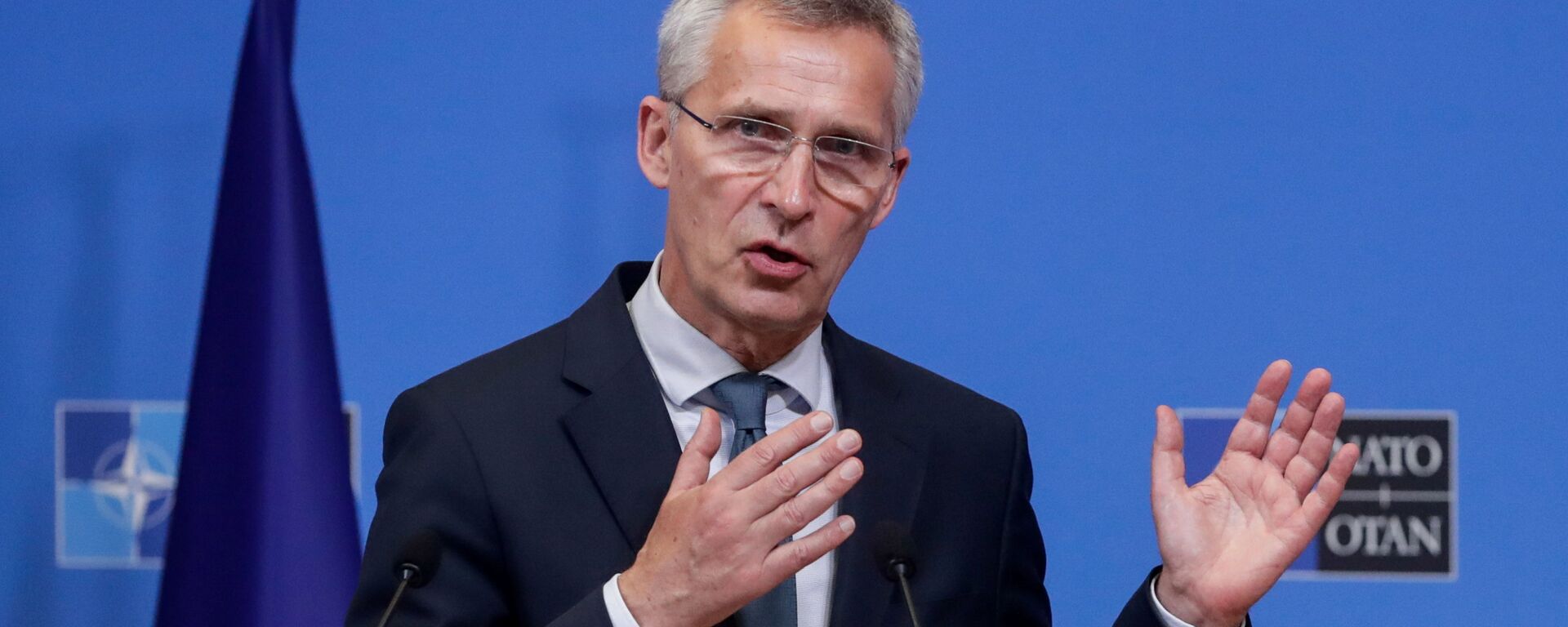
7 January 2022, 16:17 GMT
